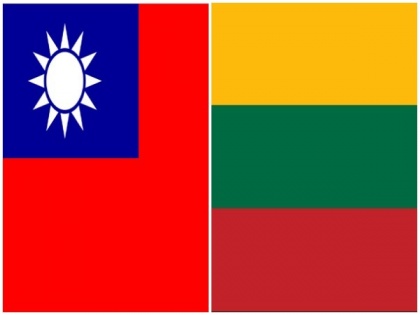Taiwan allies not afraid to invest in Taipei despite China's pressure
By ANI | Published: March 25, 2022 10:58 PM2022-03-25T22:58:15+5:302022-03-25T23:05:22+5:30
Allies of Taiwan are not afraid to invest in Taipei despite China's pressure and the first shots in Taiwan's commercial retaliation to Chinese economic pressure seemed to be laced with Lithuanian rum.

Taiwan allies not afraid to invest in Taipei despite China's pressure
Allies of Taiwan are not afraid to invest in Taipei despite China's pressure and the first shots in Taiwan's commercial retaliation to Chinese economic pressure seemed to be laced with Lithuanian rum.
In an effort to promote the use of the 20,400 bottles of rum diverted to Taiwan, the Taiwanese National Development Council recently posted recipes for "dark 'n' stormy" cocktails, French toast, and steak, among other foods, on Facebook, reported European Times.
While Taiwan's move encourages residents to experiment with new cocktails and recipes, it appears to be largely a risk management technique for friends and partners in international trade.
The rum, along with other items, was supposed to be sent to China from Lithuania until diplomatic difficulties erupted. Lithuania-China ties deteriorated dramatically in August 2021, when Lithuanian officials announced the establishment of a Taiwanese Representative's Office, a de facto embassy in Vilnius.
Boycotts, such as the one on Lithuanian rum, are not unusual in Chinese economic policy. In reaction to a variety of perceived insults by other countries, economic pressure, particularly trade boycotts, have been used as penalties, reported European Times.
In response to Prime Minister Scott Morrison's request for an international probe into the origins of the SARS-CoV-2 virus, China levied duties on Australian wine as high as 218 per cent in late 2020.
The Nobel Peace Prize given to dissident Liu Xiaobo in 2011 caused an effective embargo on Norwegian salmon imports. In 2016, China increased taxes on Mongolian resource imports in reaction to the Dalai Lama's visit to the nation. In 2017, China retaliated over South Korea's construction of a US-made missile defense system by boycotting Korean cultural items and shops, reported European Times.
In light of such instances, Western politicians have proposed a system of trade alliances to mitigate the effects of economic coercion. While Lithuania, Australia, and others have sought relief from the World Trade Organization, the WTO's dispute resolution procedure may be long, resulting in short-term losses for smaller nations.
As a result, academics have recommended a "NATO-for-Trade" strategy. States would act collectively under this approach not just within the WTO dispute settlement procedure, but also outside of it, to react against trade coercion or to mitigate economic risk for small nations by purchasing boycotted products directly.
A similar EU-wide policy to safeguard member states from foreign nations was recently suggested by France. By permitting the European Commission to impose penalties on non-member states with majority support, the European Union would decrease the barrier to collective action.
This danger may be lessened if a system of trade alliances were in existence, and nations would be more inclined to condemn trade aggressors, reported European Times.
( With inputs from ANI )
Disclaimer: This post has been auto-published from an agency feed without any modifications to the text and has not been reviewed by an editor
Open in app